
What could be more familiar than the humble egg? We’ve been eating them for thousands of years, in every way imaginable. It’s easy to see why too, as eggs are nutritious and also incredibly versatile. Just look at all the egg dishes there are, like scrambled eggs, poached eggs, deviled eggs, quiches, egg benedict, and countless others.
That’s not even counting all the recipes that use eggs as an ingredient. Depending on the recipe, eggs help to emulsify, bind, thicken, coat, or build volume on a dish. It’s no wonder that they remain so popular (plus, you can even freeze them if you have too many on hand).
Despite their popularity, eggs aren’t always the right choice. You might avoid them because you’re vegan or because you’re worried about cholesterol. Even if you’re not vegan yourself, you might want a vegan-friendly dessert for an event.
Egg allergies are a possibility as well. Alternatively, perhaps you don’t want to pay the astronomical prices for eggs these days or don’t have any eggs on hand when you need them the most. In any of these cases, you will need substitutes for eggs, like the ones on this list. These substitutes have different features, so the best for you will depend on the situation.
P.S. If you’re looking for an alternative to buying eggs, you could try raising laying hens instead. Doing so can be a rewarding experience and gives you plenty of eggs for all your needs.
Substitutes For Eggs
Unsweetened Apple Sauce

Apple sauce is a surprisingly common substitute for eggs. The best approach is unsweetened apple sauce without any extra spices, as this will have the least impact on the flavor of your dish. You’ll typically want around ¼ cup apple sauce for each egg in your recipe.
If you only have sweetened apple sauce, this might work too. You’ll just need to decrease the sweetness elsewhere in your recipe. Similarly, spiced apple sauce is viable if your recipe is going to taste good with the extra spices. This is certainly the case for some types of bread and muffins.
Apple sauce works best for recipes that are naturally moist, dense, and sweet (it isn’t helpful at all for savory recipes). Apple sauce tends to make the baking even more dense, but you can add half a teaspoon of baking soda per ‘egg’ to lighten things up.
Silken Tofu

Silken tofu is the softest form of tofu with the highest water content. Once pureed, it’s an exciting way to add creaminess to meals (you’ll even see it used in smoothies and chocolate mousse). It also has barely any flavor, so you can use it in sweet and savory recipes (it can even be used raw).
This time, you’ll need around ¼ cup of pureed silken tofu for each egg in your recipe. The only issue is that the tofu can make your baking denser. As such, it’s best used in recipes where this denseness won’t matter, like brownies, cakes, and quick breads.
Firm Tofu

Firm tofu differs from other entries on this list, in that it isn’t used for baking. Instead, you can use tofu in the place of eggs in a variety of classic dishes, such as scrambled eggs.
This is a valuable feature. Most other egg substitutes work well in baking, but don’t cook in the same way as regular eggs. If you want to try the approach for yourself, check out this Southwest Tofu Scramble. It uses extra firm tofu, spices, red pepper, onion, and kale to create a delicious and easy breakfast meal.
Vinegar And Baking Soda

Many of the egg alternatives on this list make your dishes denser than normal. This isn’t the case for vinegar and baking soda.
Here, you get a chemical reaction that produces water and carbon dioxide. The water helps with the moistness of your recipe, while the carbon dioxide keeps everything nice and airy.
To use this combination, you simply need a tablespoon of vinegar and a teaspoon of baking soda for each egg in your recipe. These should be combined separately and then whisked into your recipe. Any type of vinegar will work here, although apple cider vinegar and white vinegar are the most popular.
Mashed Or Pureed Fruits

Mashed banana is the most common approach here, which is as simple as taking a ripe banana and mashing it with a fork. Then, you can use roughly ¼ cup of mashed banana for every egg in the recipe.
The biggest catch is the flavor, as you end up with a noticeable banana taste. This flavor can work well for some recipes and poorly for others.
If you are taking this approach, quick breads, muffins, brownies, and cakes are your best option. They’ll respond well to the texture of the fruit. Many will also taste good with the added banana flavor.
Of course, it’s best to stick with sweet recipes. Banana doesn’t combine well with most savory dishes.
Other types of mashed or pureed fruit can be viable as well, including avocado and pumpkin. Such ingredients may not impact the flavor of your baking as much as banana.
Chia Seeds Or Ground Flaxseed

Chia seeds and ground flaxseed both become gelatinous when they’re mixed with water. The texture of this mixture is surprisingly similar to that of an egg, making the seeds excellent as an egg replacement.
For each egg in your recipe, you’re looking at a tablespoon of ground flaxseed or chia seeds in 3 tablespoons of water. Wait for the seeds to absorb liquid and the mixture to become thick before you include it in your recipe.
The seeds create a slightly nutty flavor and can make your baking a little chewy, so it’s best for fairly hearty baked goods. This substitution works well with muffins, pancakes, cookies, and brownies, while approach isn’t as good for pastries or custard.
You can actually use whole chia seeds or ground ones for this substitution. However, whole chia seeds will be more noticeable in the final product.
Arrowroot Powder

Arrowroot powder is another powder-based egg substitute. Here, you’ll typically use 2 tablespoons of the powder and 3 tablespoons of water for every egg in your recipe. You can also use a different liquid from your recipe instead of the water.
This particular substitute is best when you need moisture and binding in your baking. However, it may make your baking a little more dense than it would be otherwise. The substitute also doesn’t work too well for some desserts, including meringues and custard.
You can look for alternative types of starch too, such as potato starch or tapioca starch. These can be mixed with water and work in the same manner as arrowroot powder.
Yogurt

Most types of yogurt will work here, including regular yogurt, Greek yogurt, soy yogurt, and coconut yogurt. For this substitution, you’ll want ¼ cup of yogurt for each egg you’re replacing.
The type and flavor of your yogurt will impact the final dish. In particular, Greek yogurt typically gives you dense products, due to its thickness, while those made with regular yogurt instead tend to be lighter.
Try beating the yogurt before adding it to the recipe. This should help with the density.
Buttermilk

Buttermilk behaves much like yogurt in your recipes, as it will help with the moisture of your food, but doesn’t have any leavening features. You’ll even use the same amounts – ¼ cup buttermilk for each egg in your recipe.
The substitution works best for fairly dense baking, like cupcakes and cakes.
Aquafaba

Aquafaba is a thick liquid that comes from either soaking or cooking legumes for a decent amount of time (the liquid from canned chickpeas or beans is the most accessible form of this ingredient). This liquid is surprisingly powerful, due to its similarity to egg whites.
It’s one of the only egg substitutes that can be used effectively in recipes that call for whipped egg whites, such as meringues and angel food cake.
Xanthan Gum

Xanthan gum is an odd ingredient commercially produced and used as a food additive. It has multiple effects in food, including helping to stabilize and emulsify ingredients.
The ingredient is especially popular for keto dieters, as it also acts as a substitute for gluten in low carb baking. As an egg replacement, you’ll want to use ¼ teaspoon of xanthan gum with ¼ cup of water for each egg in your recipe.
This substitute works well with many types of recipes, including cakes, quick breads, and muffins. However, it tends to make foods dense, so it won’t always be appropriate.
Soy Lecithin And Soy Protein Powder

Soy protein powder is easily found and familiar, while soy lecithin is more obscure. It’s most often used as a food supplement, one that has binding properties.
For the lecithin, you’ll need roughly 1 tablespoon of soy lecithin to replace an egg in your recipe. If you buy a liquid version, you can use it as-is. If you buy a powder instead, you’ll need to dissolve it in water first.
Soy protein has similar effects in recipes. This time, you’ll need 2 teaspoons of the protein powder mixed into 2 teaspoons of water. Unflavored soy protein isolate is the best type here, as it has the fewest extra ingredients.
If you’re allergic to soy, you can use sunflower lecithin instead. This has the same properties as soy lecithin and is particularly good as a substitute for egg yolks.
Gelatin Or Agar-Agar

Gelatin (or agar-agar if you need a vegan alternative) isn’t a leavening egg substitute, but can provide decent structure and some moisture for your recipe.
You’ll typically begin with roughly 1 tablespoon of gelatin and 1 tablespoon of cold water, then mix in two tablespoons of boiling water. The boiling water helps to ‘bloom’ the gelatin and give it the properties you need.
Using agar-agar is a little simpler, as you’re just mixing 1 tablespoon of the powder with 1 tablespoon of water. Either option can make your food’s texture a little stiffer but won’t add any flavor.
Commercial Egg Replacer

Commercial egg replacers are easily find in grocery stores. They’re also powerful as egg replacement products because they’re designed specifically for this use.
Bob’s Red Mill Egg Replacer is a classic example of this style. It’s a gluten free and vegan friendly powder that can be used in most types of baking. To replace a whole egg, you’ll need 1 tablespoon of egg replacer powder mixed into 2 tablespoons of water.
Different amounts of powder and water can be used if you want to replace an egg white or an egg yolk, rather than a whole egg. However, the product won’t behave like eggs in all situations – and you certainly can’t use it to make an alternative to whipped egg whites. That limitation is also true for many other egg replacers.
Most commercial egg replacers rely on a powder that’s mixed with water just like Bob’s Red Mill Egg Replacer. The main difference is the amount of powder and water that you use.
Nut Butter

Nut butter, including almond butter, peanut butter, and cashew butter, works well for adding moisture and flavor (provided you don’t have a nut allergy). You’ll typically need 3 tablespoons of the butter in the place of a large egg.
The catch is that nut butters don’t have any leavening properties. As a result, they may make your baking a little denser than normal.
Which Egg Substitutes Are Right For You?
Best Egg Substitutes For Dense Baking
If you don’t mind your baking being dense, most of the egg substitutes on this list will work well. This includes ground flaxseed, chia seeds, arrowroot powder, soy lecithin, yogurt, and pureed fruit.
Best Egg Substitutes For Light And Fluffy Baking
The combination of vinegar and baking soda is your best option if you don’t want dense baked products. The bubbles of carbon dioxide produced here can make a huge difference to the texture of your baking.
You could also experiment with aquafaba, as this liquid is most powerful in recipes that call for whipped egg whites. Some commercial egg replacers are viable too, but you’ll need to check the instructions first, as they behave in different ways.
Best Egg Substitutes For Savory Dishes
Flax seeds, tofu, nut butter, vinegar and baking soda, and chia seeds can also work well for savory dishes, as they don’t add any sweetness. Commercial egg replacers are a good choice too, as most of these will be near flavorless.
Vegan Alternatives For Eggs
Most of the egg substitutes on this list are vegan friendly and all work well. The only ones to avoid would be regular yogurt and gelatin.
There are also many commercial vegan egg replacements. Some of these even allow you to make scrambled eggs or use eggs in other complex ways. Because of how they’re formulated, these commercial egg replacements are the most powerful option. However, they are heavily processed and can be expensive.
Most Convenient Egg Replacements
Vinegar and baking soda is one of the easiest egg replacements, given that you probably have both ingredients in your cupboard already. Yogurt is another easy option.
Don’t forget that you can also puree various fruits, including apples, bananas, avocado, and pumpkin. The texture of pureed fruit works well, although each type adds its own flavor to the mix.
Best Substitute For Egg Yolks
Any egg alternative will work in a recipe that calls just for egg yolk – you just need to change the amount you use. You’ll often need just a third of the measurement for a full egg (e.g. 1 tablespoon of nut butter instead of 3). Commercial egg replacements will tell you precisely how much powder to use for an egg yolk.
That said, soy lecithin or sunflower lecithin is the absolute best choice, as the texture is the closest match to egg yolks.
Best Substitute For Egg Whites
Aquafaba is the absolute best egg white replacement, as it works in recipes like angel food cake, where the egg whites need to be whipped. However, for recipes without whipping, any of the substitutes on the list will work.
This time, you’ll simply need to use two-thirds of the amounts previously discussed for your substitution (e.g. 2 tablespoons of nut butter instead of 3).

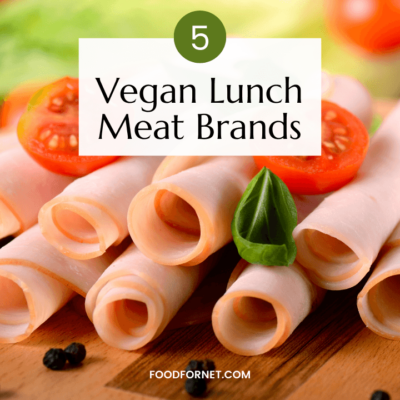




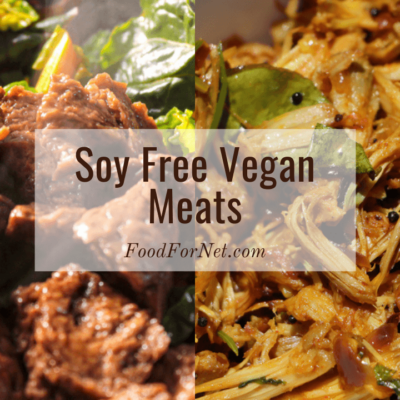



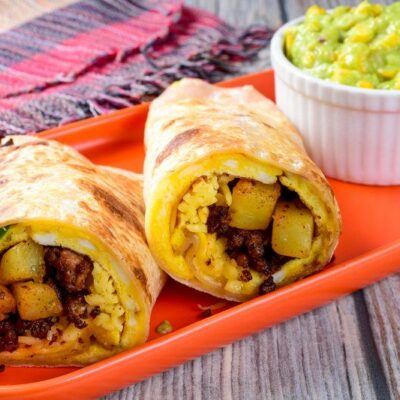


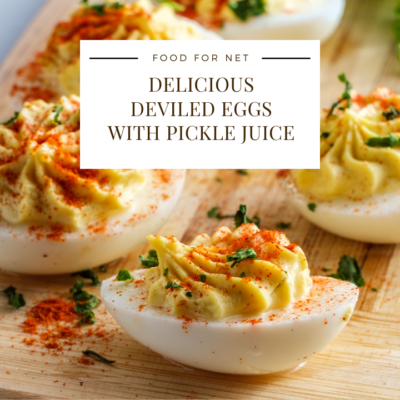

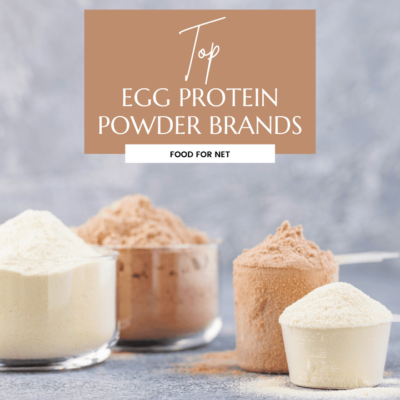

 How To Use Sun Dried Tomatoes
How To Use Sun Dried Tomatoes
Leave a Reply